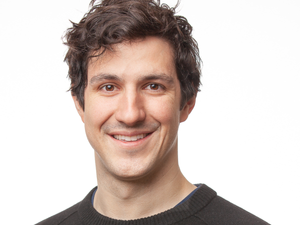Simple blood tests could be the key to early detection and treatment of cancer. Baltimore-based Personal Genome Diagnostics has just released exactly that kind of test, releasing it last week at the same time as it closed a $2.8 million funding round to continue their research into tumor DNA.
Cancer can be difficult and dangerous to properly diagnose, with bone marrow draws and other surgeries often necessary. When doctors suspect there is a tumor, they start by analyzing tissue samples to test for cancer and figure out possible treatment plans based on what they find. PGD's new test relies instead on a blood test that can identify a gene associated with tumor DNA.
Such personalized medical tests and treatments are getting more and more attention as medical research uncovers new and better ways to come up with medical care tailored down to the DNA. The new test can identify the possible cancer for way cheaper and with way less messiness than a traditional biopsy.
"Our METDetect assay is the first plasma-based DNA test suitable for clinical use with the capability to detect somatic tumor-derived gene amplification," said research and development director Mark Sausen in a release from the company.
"We believe this test will facilitate initial assessments of patient tumor status as well as re-testing for the presence of treatment-induced genomic changes in the MET gene, since no tumor biopsy material is needed," said chief commercial officer Antony Newton.
The coincidentally-timed funding round that closed last week is the first the company has run. The $2.8 million will go to coming up with new genetic tests for cancer that will replace the need for a biopsy.
The technology for the test, called PARE, was originally developed by Johns Hopkins genetic researchers, who spun the company off in 2010 with funding mainly coming from the cancer genomic analysis service it offered.
"Until now, we had declined to accept funds from external parties, but decided that the substantial clinical and commercial opportunity represented by this technology warranted opening our doors to financial participation by a few select investors," Newton said.
Image by Christoph Bock (Max Planck Institute for Informatics) via Wikimedia




